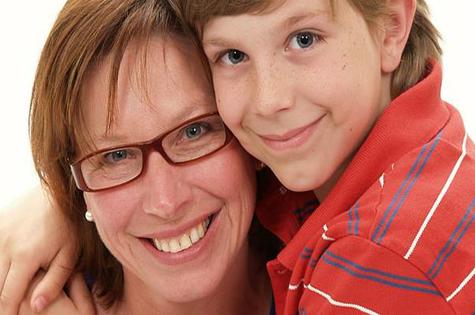“I want to tell everybody,” began a woman we didn't know to a packed media conference about 11 months ago.
She continued. “Family violence happens to everybody. No matter how nice your house is, how intelligent you are. It can happen to anyone, and everyone. This has been an 11-year battle. You do the best you can. You’re a victim, and you’re helpless. An intervention order doesn’t stop anything like this from happening.”
The woman was Rosie Batty who was named 2015 Australian of the Year in Canberra on Sunday. Rosie is the mother of 11-year-old Luke, who was killed with a cricket bat by his father in February last year.
How do you pick yourself up after such devastation?
Like Rosie Batty, when faced with the very worst she could imagine, we all tend to do so. Life goes on because it has to.
But Rosie did more. Since Luke’s death, she has dedicated her time and effort to becoming an advocate for victims of domestic violence.
Always calm and eloquent, she has spoken of her frustration with dealing with government agencies whose job is to protect women and children; she has talked about the privacy laws which prevented authorities letting her know of what her former partner (Luke’s father) was up to – acts that would have been a ‘red flag’ to Rosie; she has called-out public servants for their slowness when reports were not ready for the inquest into Luke’s death.
With Luke gone, she has lost any sense of fear she might have once had about Luke’s father or people in positions of power.
Rosie Batty said she would use her profile to continue her work. In particular, she wants more men to talk about family violence and confront violent behaviour when they see it.
Rosie says Australia needed cultural change to tackle domestic violence.
"Where does violence come from? It comes from gender and inequality," she said. "It comes from men feeling a sense of entitlement toward their children and partners.
"Even though women are violent as well, the statistics are clear. It is very much a male issue."
One-in-three women experiencing violence at the hand of someone they know, On average, one woman is killed every week by an intimate partner, and one-in-four children has been exposed to domestic violence.
She believes Australians, including political leaders, must "step up" and take ownership of their behaviour.
"There's a lot of women speaking out but not getting heard," she said in Canberra on Sunday.
"Either they can't speak because they've got family law court matters and the media can't report on them, or their story is not headline news.”
She is brutally honest when she says that it is only because of Luke’s death, that she has been heard - and listened to.
"(Otherwise) I would have been another voice that didn't have a good enough story."
* * *
Women scooped the pool in the Australian of the Year awards. Other winners were:
- Children's author Jackie French, an advocate for young people with learning difficulties and the current national Children's Laureate was named Senior Australian of the Year.
- Drisana Levitzke-Gray, was named the Young Australian of the Year. The 21-year-old was the fifth generation in hear family to be born deaf, and dedicates her time to helping other deaf people and advocating their human rights.
- Juliette Wright of Queensland was named Australia’s Local Hero 2015. Ms Wright founded GIVIT, an online site that connects a networker of givers who can donate to those in society who are most in need.



















__small.png)










